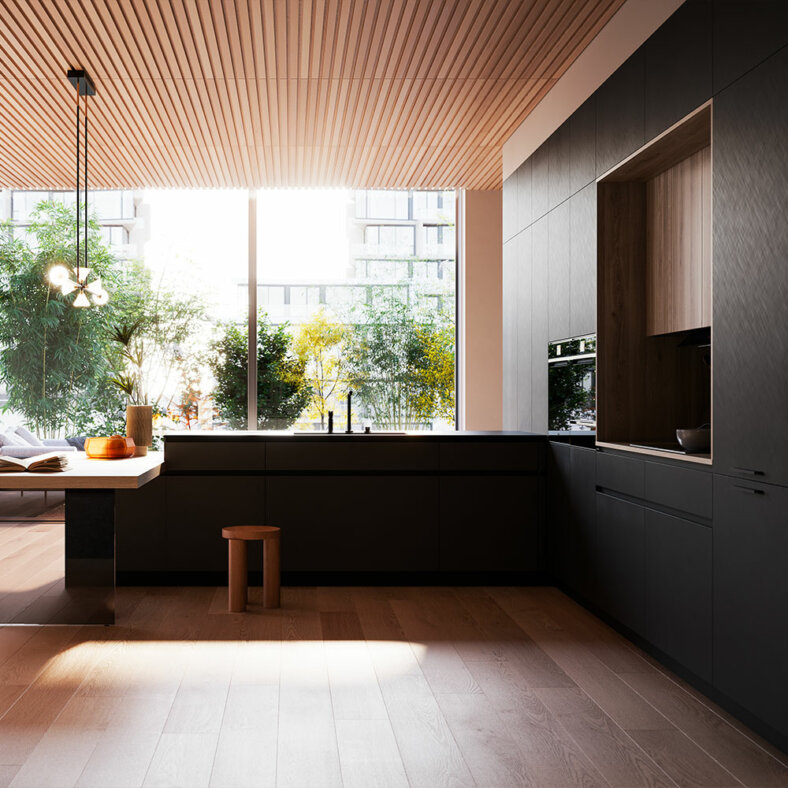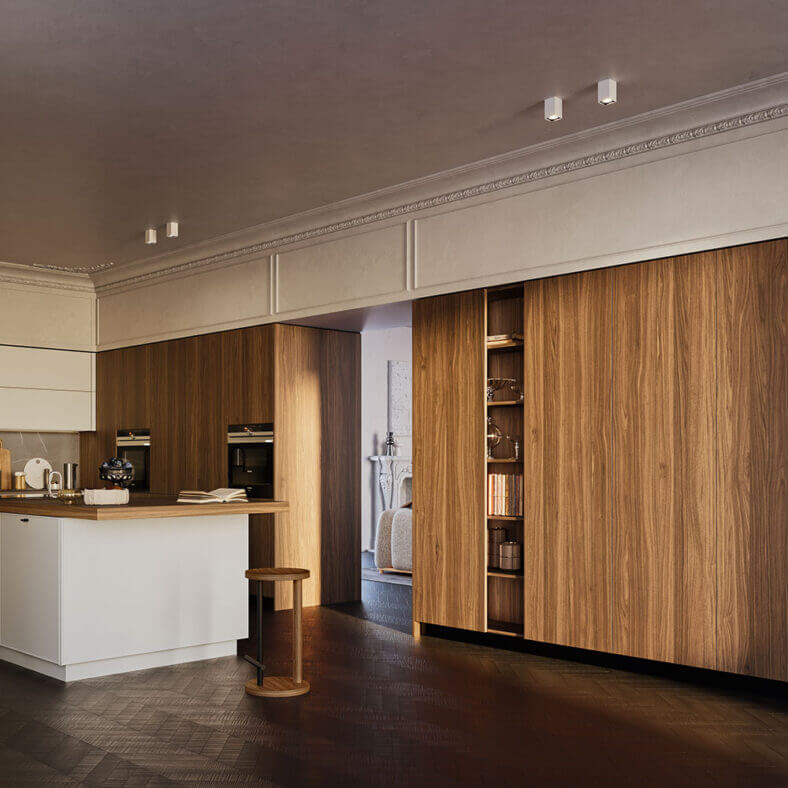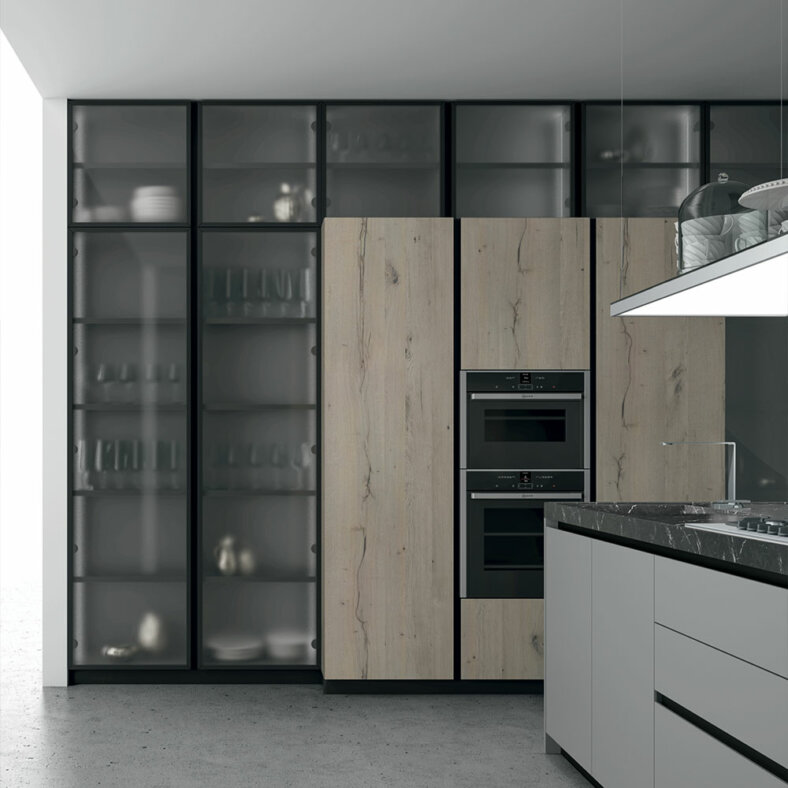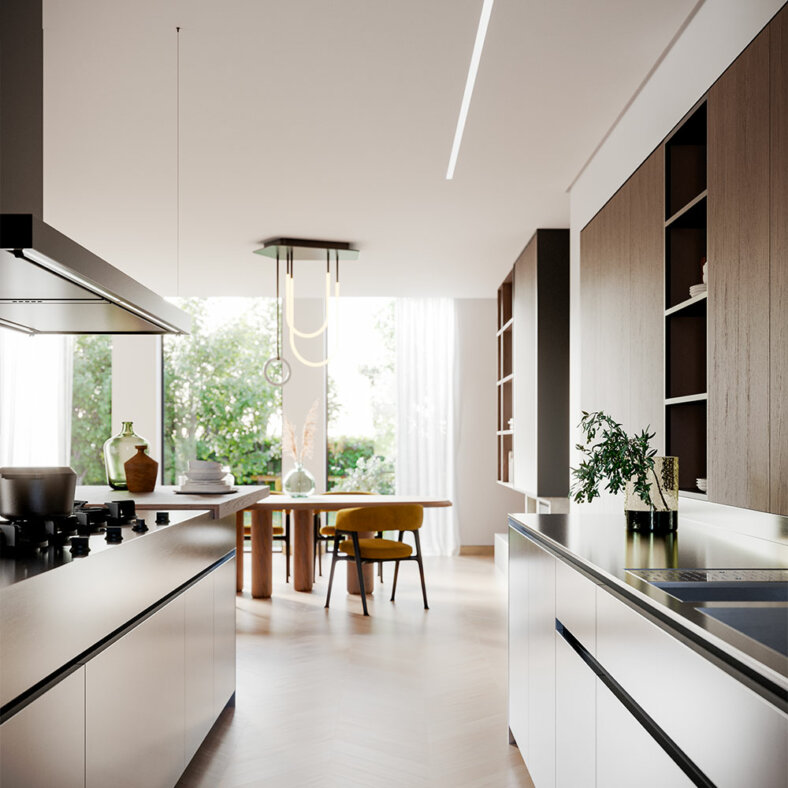Suggestions and guides
Peltrox®
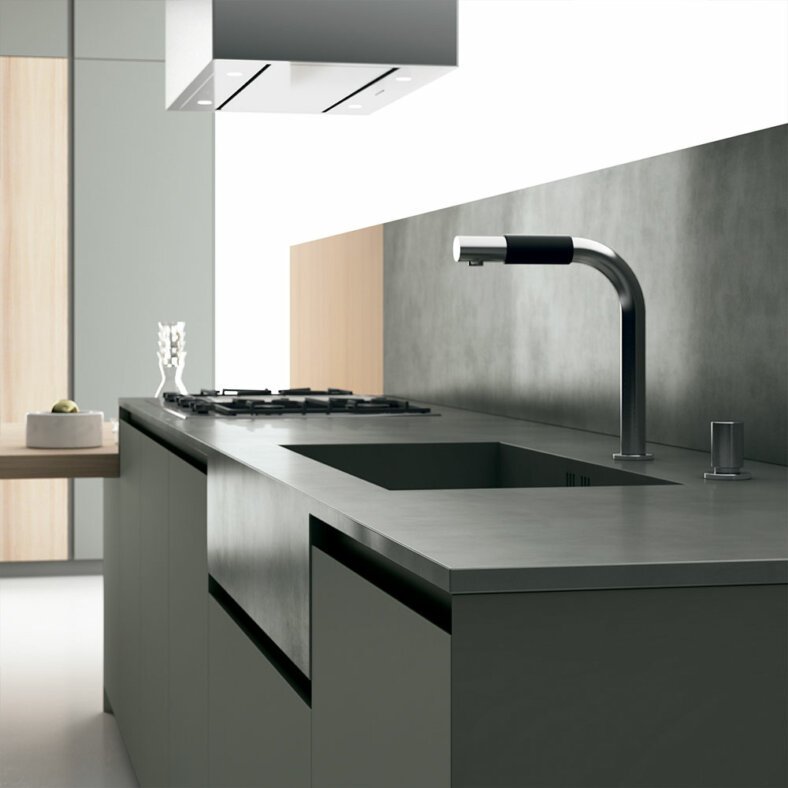
Practicality and resistance
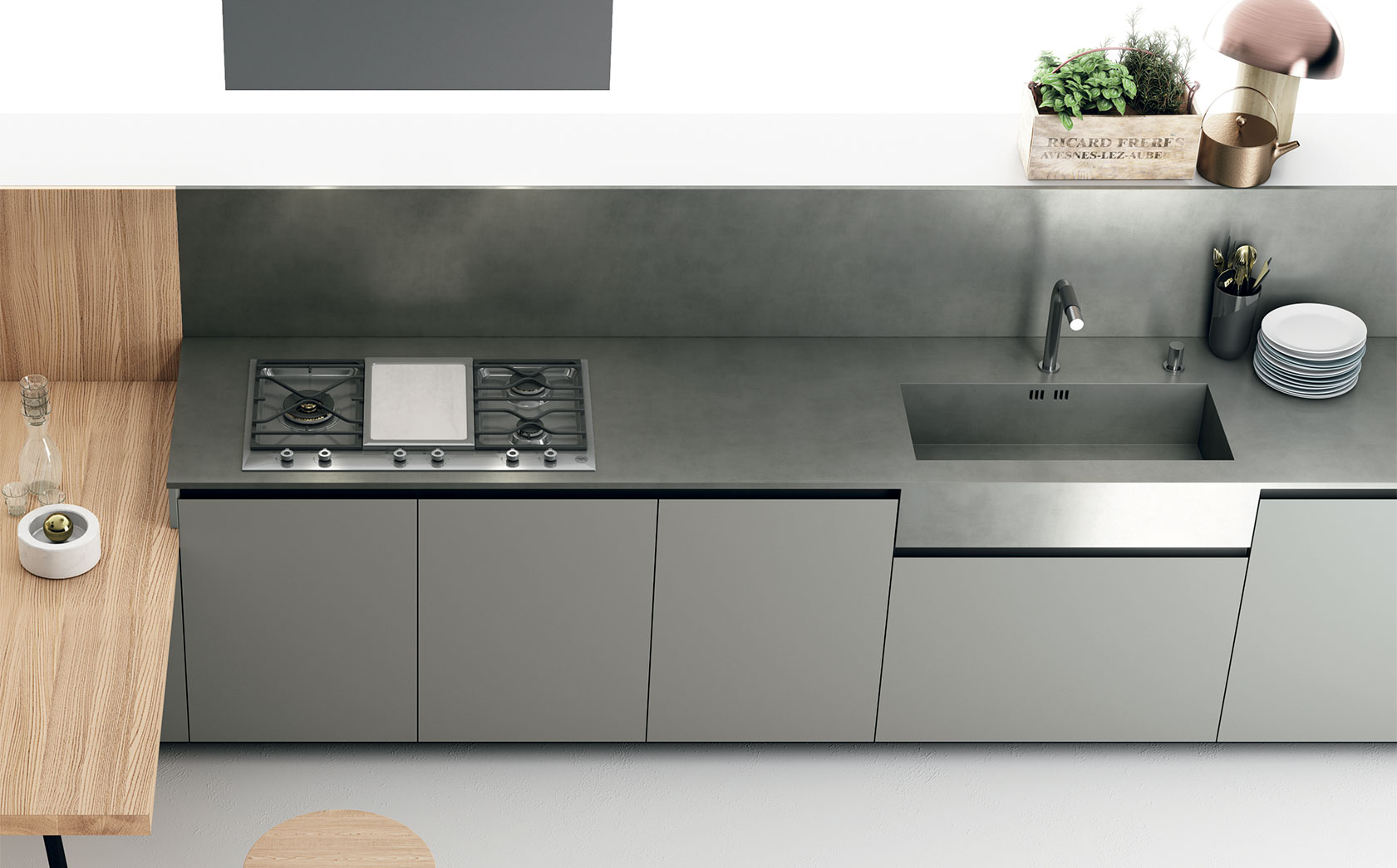
What is Peltrox®?
Peltrox® is a material with an innovative appearance. It is a classical AISI 304 stainless steel, certified for use in the food industry, with a surface treatment inspired by pewter, a traditional metal with a used look, though too soft to be used for furniture.
Characteristics of Peltrox®
Kitchens in Peltrox® offer all the beauty of pewter and permit invisible welds and the large surfaces required for work tops. Scratches can be repaired and this material maintains all of the same technical characteristics as stainless steel, which is:
- highly stain resistant
- very resistant to heat
- very resistant to corrosion
- very hygienic
- stable over time
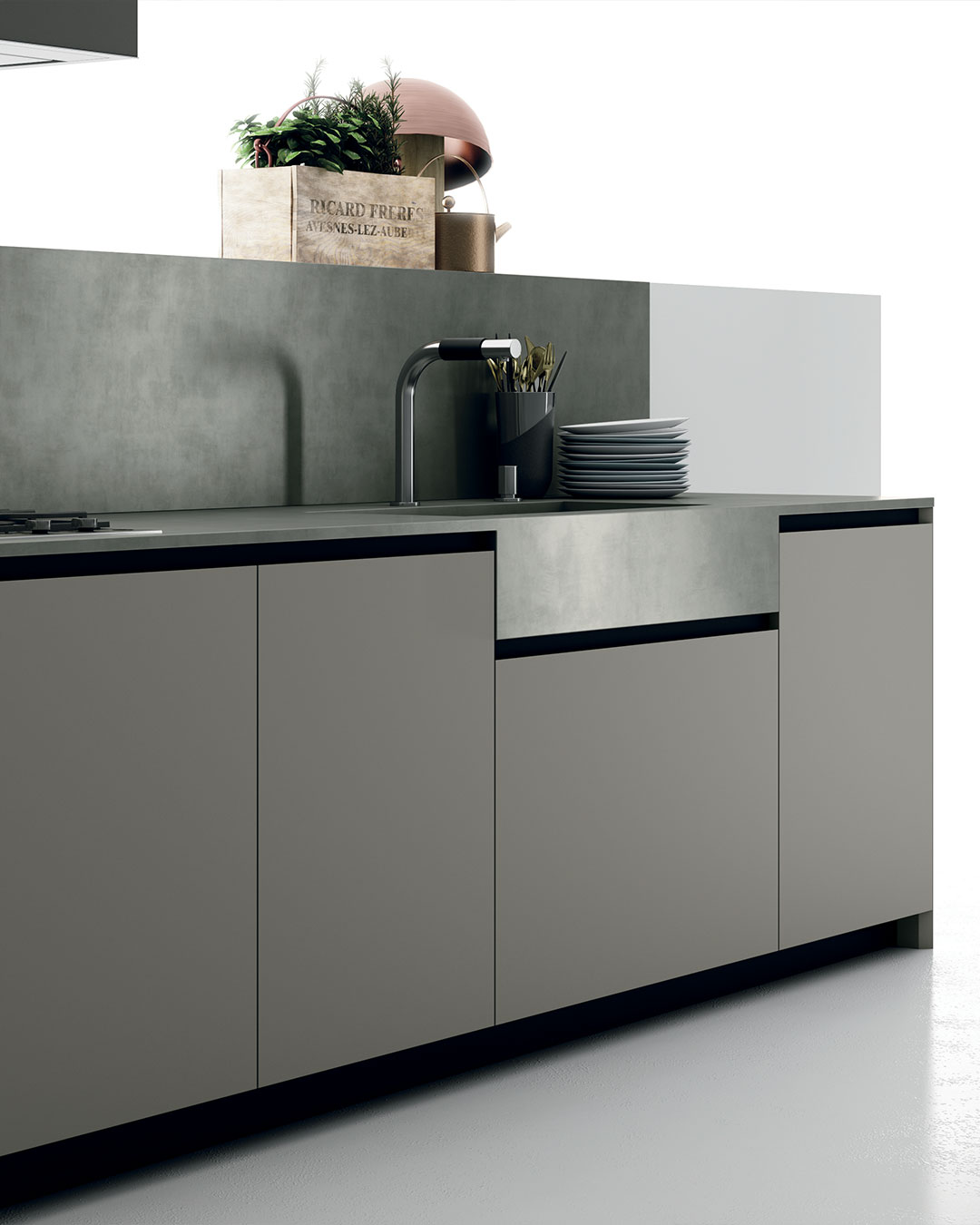
Kitchen fronts in Peltrox®
Peltrox® kitchen fronts are made from a sheet of AISI 304 stainless steel with a Peltrox® finish, welded at the corners and applied to a raw panel finished internally with a more economical material. Doimo Cucine, for example, offers Peltrox® fronts with an internal finish in anodized aluminium and a plywood core.
Kitchen work tops in Peltrox®
Peltrox® work tops are made from varying thicknesses of austenitic stainless steel, folded and fixed to a raw panel. Doimo Cucine, for example, uses a 1 mm thick Peltrox® finished sheet, mounted on water-repellent particle board. The steel is folded at the front and sides and welded at the corners. Work tops often feature integrated splashes or splashbacks in Peltrox®.
How to clean a kitchen in Peltrox®
Cleaning Peltrox® surfaces requires the same care used for stainless steel: the day to day use of a soft cloth, tepid water and neutral soap. Rinse generously and dry carefully with a soft dry cloth.
Avoid:
- dragging kitchen utensils or other objects across the surfaces
- cleaning with deoxidizing agents, acidic detergents, products containing chloride or ammonia and abrasive creams
- using knives or sharp utensils directly on the steel surface
- leaving ferrous elements on horizontal surfaces for long periods of time (cook top grilles, scissors, steel jars, etc.); when wet, they can leave difficult to remove stains
- leaving standing water on the surface, which can cause oxidation
